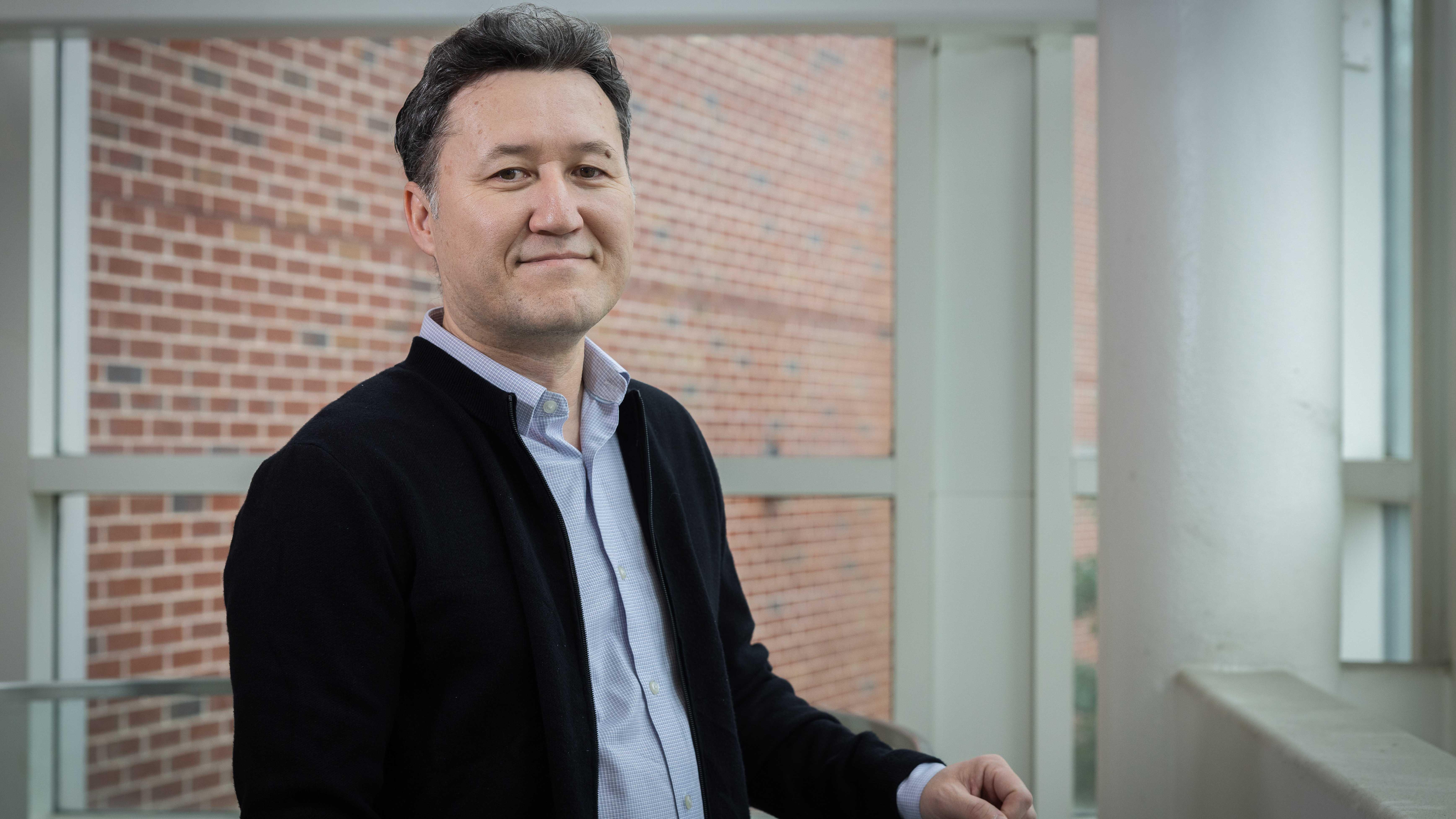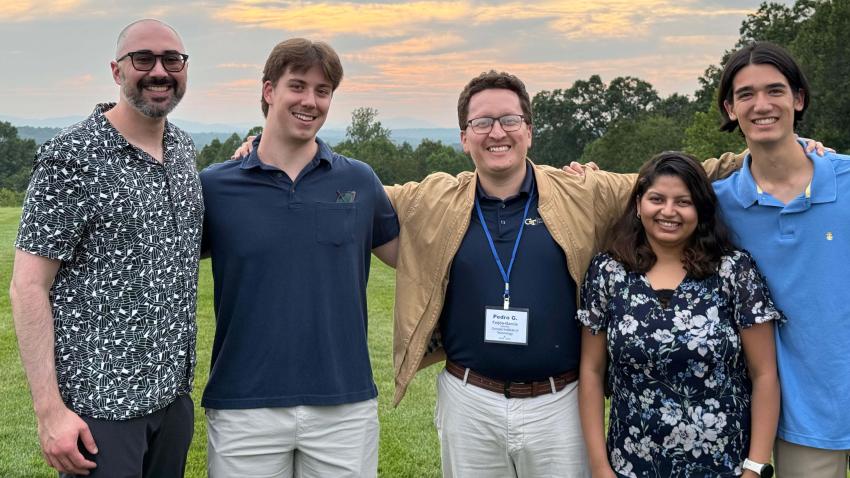
Undergraduates Present New Research on Cheating and Student Engagement in Computing Education
Undergraduate researchers are uncovering how students and instructors view academic dishonesty differently, and what keeps students most engaged in the classroom.
Their findings, shared at the International Computing Education Research (ICER) 2025 conference hosted by ACM, the Association for Computing Machinery, highlight how students approach learning and academic honesty in large courses.
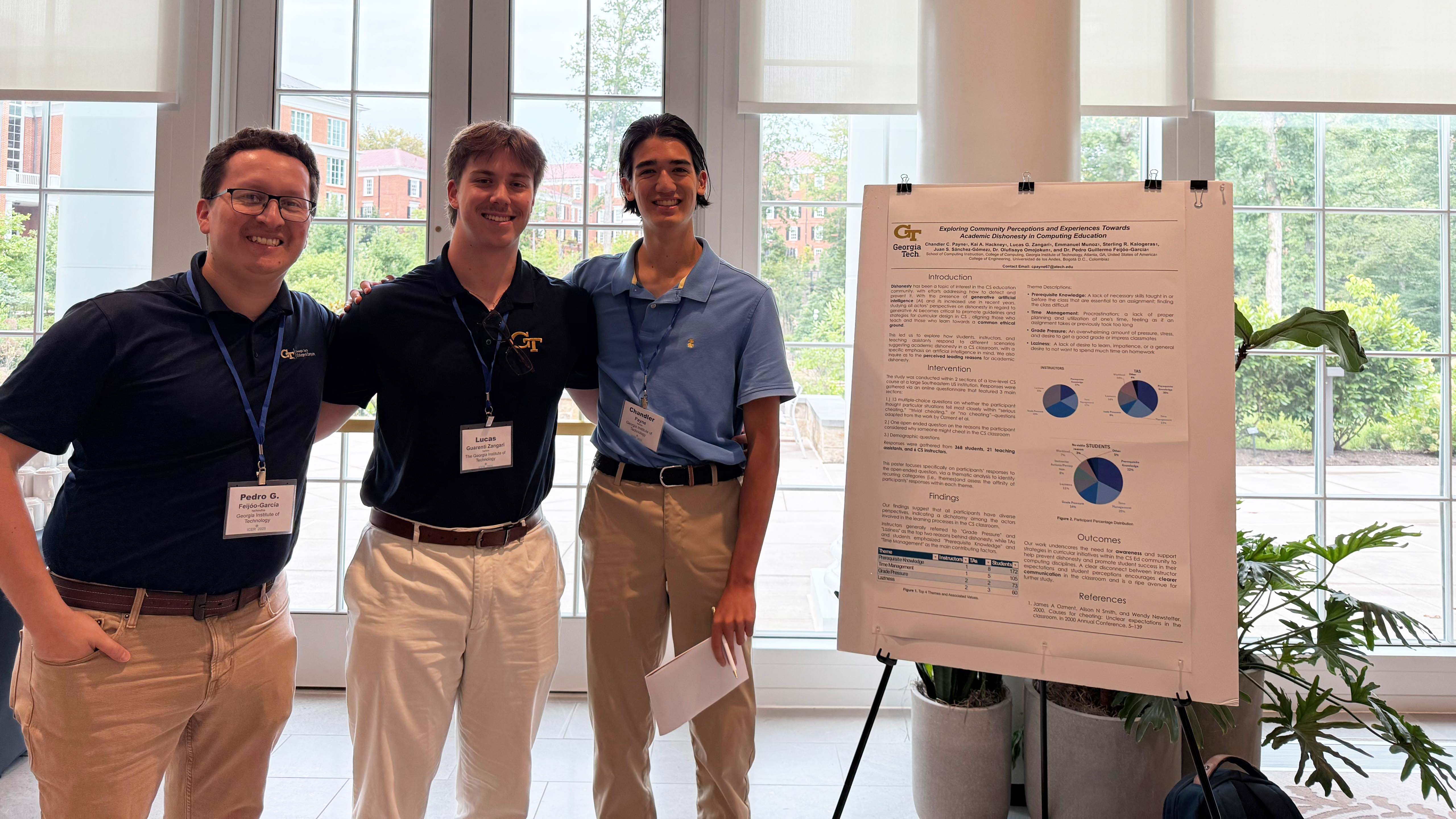
As computer science (CS) majors and researchers with the People-Agents Research for Computing Education (PARCE) lab, Chandler Payne and Lucas Zangari attended ICER with their mentor, Pedro Guillermo Feijóo-García, a faculty member in the School of Computing Instruction. For both students, it was their first academic conference and debut as lead authors on peer-reviewed research.
Academic Dishonesty in the Computing Classroom
Payne presented the poster, Exploring Community Perceptions and Experiences Towards Academic Dishonesty in Computing Education, with Zangari. The research team also included fellow CS majors and PARCE-Lab researchers Kai Hackney, Emmanuel Munoz, and Sterling Kalogeras. University of the Andes doctoral candidate Juan Sebastián Sánchez-Gómez, College of Computing Associate Dean Olufisayo Omojokun, and Feijóo-García were also co-authors.
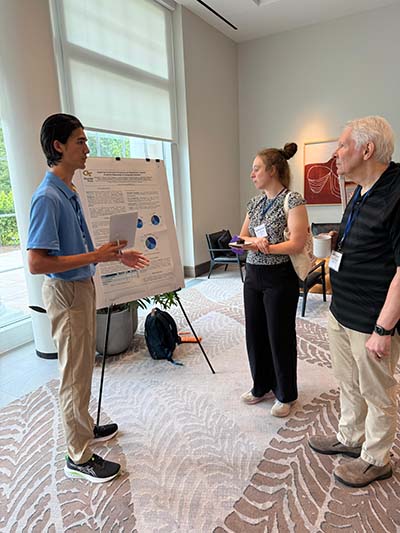
Surveying more than 500 students, 21 teaching assistants (TAs), and six College of Computing instructors, the study revealed strikingly different perspectives on why academic misconduct occurs. Instructors often attributed dishonesty to grade pressure or laziness, while students and TAs cited time management challenges and gaps in prerequisite knowledge.
“One of the key findings is how different perceptions on reasons behind academic misconduct can be,” Payne said.
Study Sheets and Student Engagement
Zangari presented the poster, Should I Submit or Should I Not? Exploring the Effects of Mandatory vs. Voluntary Tasks on Student Engagement in Computing Education, co-authored by Feijóo-García and alumnus Emilio Aponte-Archila. The study comes from instructional design efforts in CS 2340 Objects and Design, a course in which Zangari and Aponte-Archila have served as head teaching assistants under the supervision of Feijóo-García.
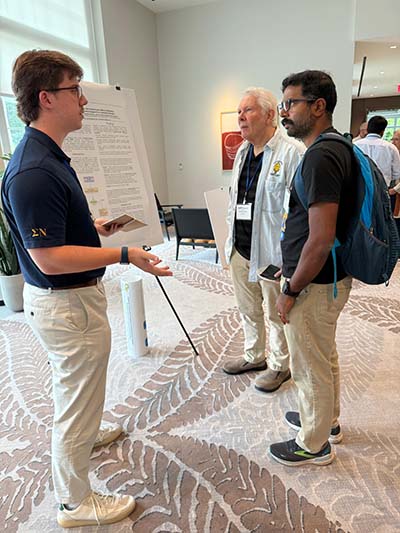
The study examined how requiring students to create study sheets affected perceived performance and engagement in a large introductory software engineering course. Two of four sections were required to submit sheets, while the others had the option. Students reported on their study habits and how well they thought they did in the class through a questionnaire.
Overall, there weren’t significant differences between the mandatory and optional groups. However, female students in the optional group reported feeling they performed the best, compared with female students in the mandatory group and with male students.
At the same time, Zangari noted that all students in the mandatory group tended to spend more time on their study sheets, particularly on the second submission.
“Despite the differences we saw when accounting for gender, the mandatory groups reported higher dedication to the second study sheet than their optional counterparts,” he said.
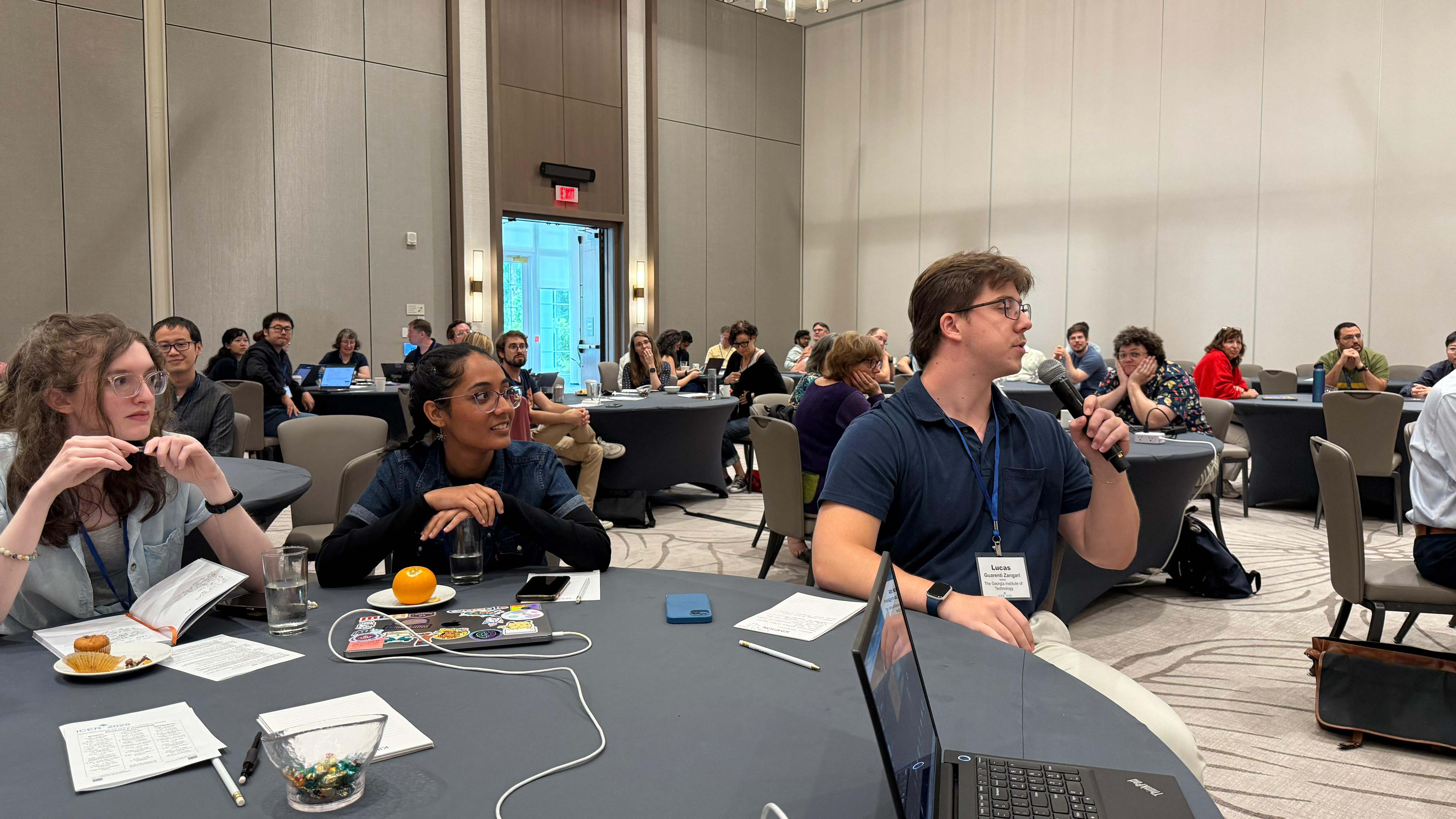
“Presenting at ICER as an undergrad is something freshman Lucas did not see coming,” Zangari said. “The most memorable moment for me was speaking with a researcher from the University of Toronto studying gender differences. It was eye-opening to see how our work connected across institutions.”
[RELATED: Data Visualization Shows Other Highlights from ICER 2025]
Milestones in Mentorship and Representation
For Feijóo-García, watching his students present at ICER was a meaningful milestone.
“It was my first CS education conference with lab mentees, and an incredible moment for all of us,” he said. “Even after completing my Ph.D. in human-centered computing a couple of years ago, few experiences have felt as meaningful as guiding undergraduate mentees in research. Seeing them present as first authors was something very special.”
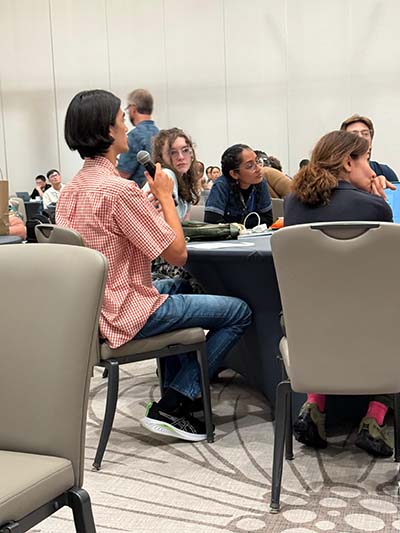
For Zangari and Payne, presenting at ICER was a defining step in their growth as researchers.
“This experience confirmed for me that research in CS education is something I want to pursue further in graduate school,” Zangari said. He also emphasized the importance of Feijóo-García’s mentorship in his journey: “Without him, my work, success, and contributions would not be possible.”
Payne echoed the sense of opportunity, highlighting the collaborative spirit of the community.
“What I found most exciting was how eager many presenters were to collaborate and how the conference afforded such a great opportunity to do so. I got great feedback on my presentation and look forward to how connections I made may impact future work.”

